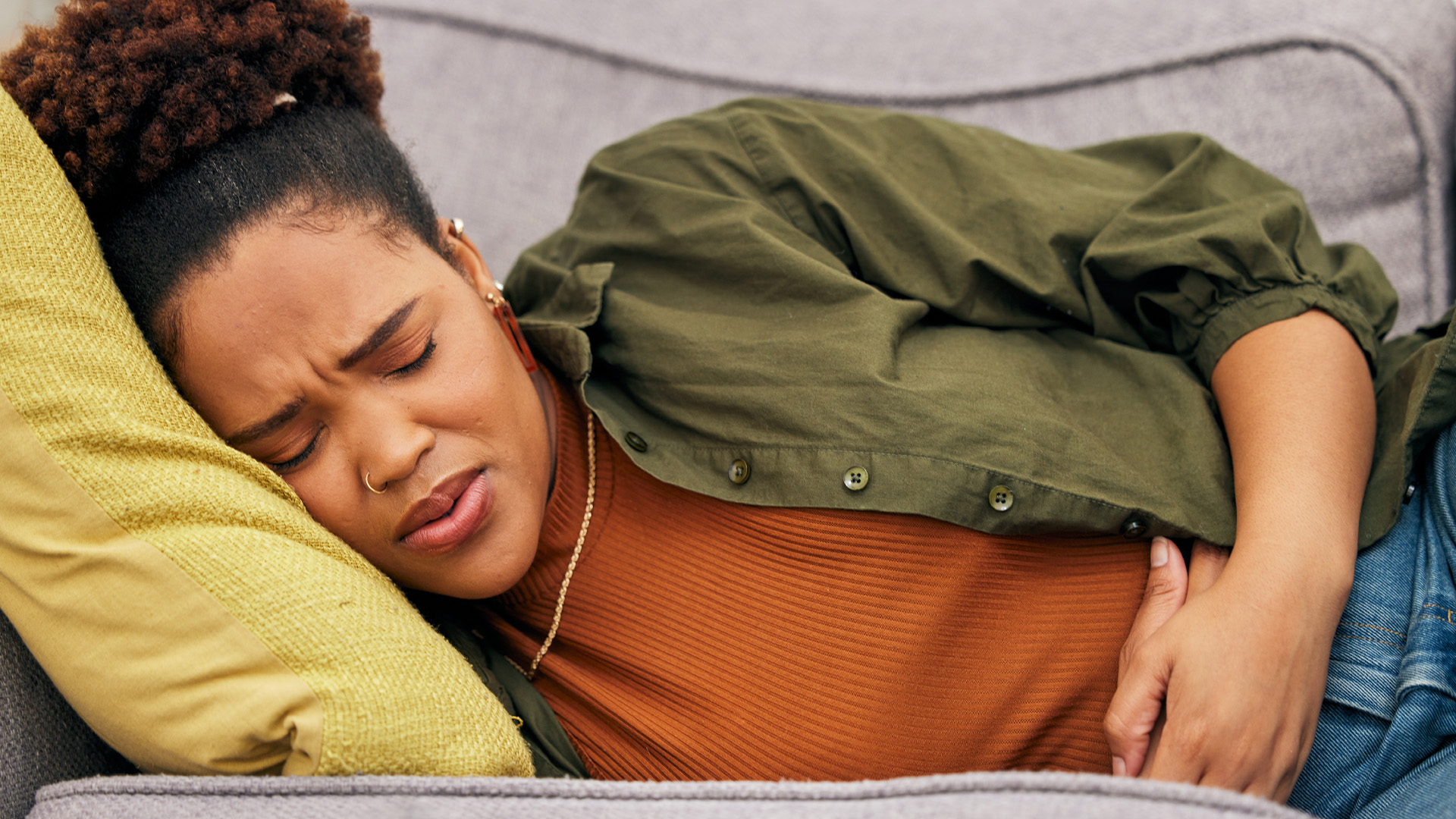
A rare syndrome leaves people unable to burp and disrupts their daily lives, causing bloating, excessive flatulence and loud gurgling noises in their necks and torsos. However, people with the condition may be unlikely to seek help, and even when they do, they may not get adequate treatment, a new survey-based study suggests.
The condition, called "retrograde cricopharyngeus dysfunction" (R-CPD), was formally described and named in 2019. However, scattered case reports describing the condition can be found dating back to 1987.
R-CPD, also known as "no-burp syndrome," is caused by issues with the cricopharyngeus muscle, a ring-shaped muscle at the top of the windpipe. During a burp, this muscle relaxes to allow excess gas from the stomach to escape through the throat — but in people with R-CPD, the muscle stays tightly contracted and doesn't let that air out. Injections of botulinum toxin (Botox) can relax the muscle and thus effectively treat the condition and allow people to belch.
Because it's newly named and rarely observed, R-CPD remains relatively unknown among medical providers, the researchers behind the new study wrote in a report published Wednesday (Dec. 20) in the journal Neurogastroenterology & Motility. Through their research, they want to get a better sense of how R-CPD affects people's lives and whether many seek medical treatment.
Related: What causes bloating?
"By raising awareness about its symptoms and their consequences, we can increase diagnosis and treatment rates, ultimately enhancing overall quality of life," the authors wrote in the report.
To recruit people for the study, the researchers took to Reddit. The subreddit "r/noburp" includes about 26,000 members who share information about R-CPD. "Although many [members] are self-diagnosed, it provides the largest population to gain preliminary insight into the disease directly from those who are afflicted," the study authors noted, acknowledging this limitation of the research.
The researchers invited the subreddit members ages 18 and older to complete a survey about their experiences, and 199 participated. Their average age was around 31 and about three-quarters of the respondents identified as female.
Survey participants were asked about their common symptoms, with 197 reporting an inability to burp and 195 reporting abdominal bloating or chest pain after eating. Slightly fewer people — around 90% — reported socially awkward gurgling noises from the chest and lower neck or excessive flatulence, and 110, or 55%, reported difficulty vomiting.
The majority of participants said they experienced symptoms daily and rated their level of discomfort between 3 and 10 on a 10-point scale, with 7.3 being the average. Many reported feelings of embarrassment, awkwardness, anxiousness or depression related to the condition, and many also reported disruptions in their relationships and in their work life tied to the syndrome.
About half the respondents said they couldn't remember a time in their lives when they did not have the condition. Roughly a quarter said they first experienced it in childhood or early adolescence, while most of the remaining quarter developed it in late adolescence or in their early 20s.
Only one-third of the respondents had been formally diagnosed with R-CPD by a doctor, although nearly 54% reported discussing their symptoms with a primary care provider. Of these latter individuals, about 59% "strongly disagreed" and 32% "disagreed" with the statement that their doctor understood how to help them feel better.
Only about 23% of respondents reported getting Botox injections for R-CPD, while others used other means to relieve their symptoms. For example, many people find some relief in changing their body position from upright to lying down; others reported meditating, deep breathing, resting or doing physical exercise to try and ease their symptoms.
Future research should probe doctors' awareness of R-CPD and its treatments, as well as reasons why many patients are hesitant to discuss the symptoms with their physicians, the study authors concluded.
This article is for informational purposes only and is not meant to offer medical advice.
Ever wonder why some people build muscle more easily than others or why freckles come out in the sun? Send us your questions about how the human body works to community@livescience.com with the subject line "Health Desk Q," and you may see your question answered on the website!







